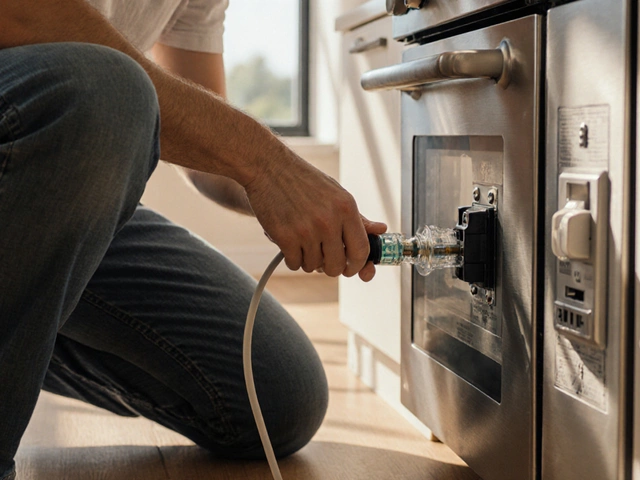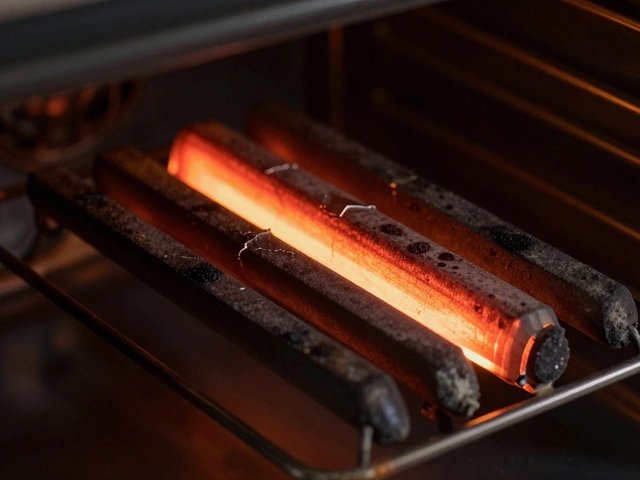Ever notice a stale, greasy smell lingering after you cook? Chances are your kitchen fan (extractor) is clogged with grease and dust. A dirty fan not only smells bad, it works harder, uses more power, and can even become a fire hazard. The good news? Cleaning it is easier than you think and takes less than an hour.
Most experts say a quick wipe‑down every month is enough to keep surface grime at bay. For heavy cookers – think fried dishes, frequent grilling, or a busy family kitchen – aim for a deeper clean every 3‑4 months. If you see reduced suction, louder noise, or the light on the fan flickers, it’s a clear sign you need to act now.
1. Gather your tools. You’ll need a screwdriver (usually Phillips), a soft brush or old toothbrush, a spray bottle with warm soapy water, paper towels or a clean rag, and a bucket for any removable parts.
2. Turn off power. Safety first – switch off the fan at the wall or circuit breaker. Even if the fan looks harmless, you don’t want any surprise shocks.
3. Remove the cover. Most extractor fans have a metal or plastic grille that snaps or screws off. Keep the screws in a small container so they don’t roll away.
4. Soak and scrub. Place the grille in a bucket of warm soapy water for a few minutes. Then use the brush to scrub away baked‑on grease. For stubborn spots, apply a bit of kitchen degreaser or a mix of vinegar and baking soda.
5. Clean the fan blades. If your model allows, remove the fan blades (usually just a couple of clips). Wipe each blade with a damp rag. Avoid getting water inside the motor housing – just a quick surface clean is enough.
6. Check the filter. Many fans have a replaceable charcoal or mesh filter. If yours is washable, rinse it under hot water and let it air‑dry. If it’s a carbon filter, replace it according to the manufacturer’s schedule.
7. Reassemble and test. Snap the grille back on, tighten any screws, restore power, and turn the fan on. You should hear a smoother, quieter operation and notice better airflow.
That’s it – a clean fan in under an hour. Regular maintenance not only keeps odors away but also extends the life of the motor, saving you money on costly repairs.
Quick tips to remember:
By making kitchen fan cleaning a habit, you’ll enjoy a fresher cooking space, lower energy bills, and peace of mind that your home is safe from hidden fire risks. Need help or a professional touch? Our Bognor Regis Appliance Repair Experts are just a call away – we’ll clean, repair, or replace your fan fast and at a fair price.

Struggling with a kitchen extractor fan that's lost its power? This guide explains how to find and fix common blockages that cause bad smells and poor airflow. Learn step-by-step how to safely clean your fan and make it work like new, plus get handy maintenance tips to stop future clogs. We break down the process so you don't need tools or special skills. Get your kitchen back to normal without calling in an expert.

Got an appliance that isn’t working right? The way you describe it can make or break your service experience. This article breaks down how to explain what’s wrong with your appliance, what details really matter, and how to avoid confusion. Learn which features, model numbers, and problem signs technicians care about. Save time and frustration on your next repair call.

Learn why your electric oven suddenly stopped working, diagnose power, element, thermostat or safety fuse issues, and decide when to DIY or call a repair professional.

Learn how to tell if your electric oven element is bad with simple visual checks and a multimeter test. Save time and money by diagnosing the issue yourself before calling a repair technician.

Thinking about installing a new electric oven? It's not always as simple as plugging it in. Discover the ins and outs of electric oven installation with tips on wiring, safety precautions, and when to call a professional. Learn what to check before attempting to plug in a new unit and how to ensure everything's set up correctly for safe and efficient use.

Wondering if you can fix your microwave at home instead of tossing it and buying a new one? This article breaks down common microwave problems, what you can safely handle, and when it's better to call a pro. Get practical tips that actually make a difference, plus real talk about microwave safety. Save yourself time, money, and stress with easy-to-follow advice. Tackling your appliance repair just got a whole lot simpler.